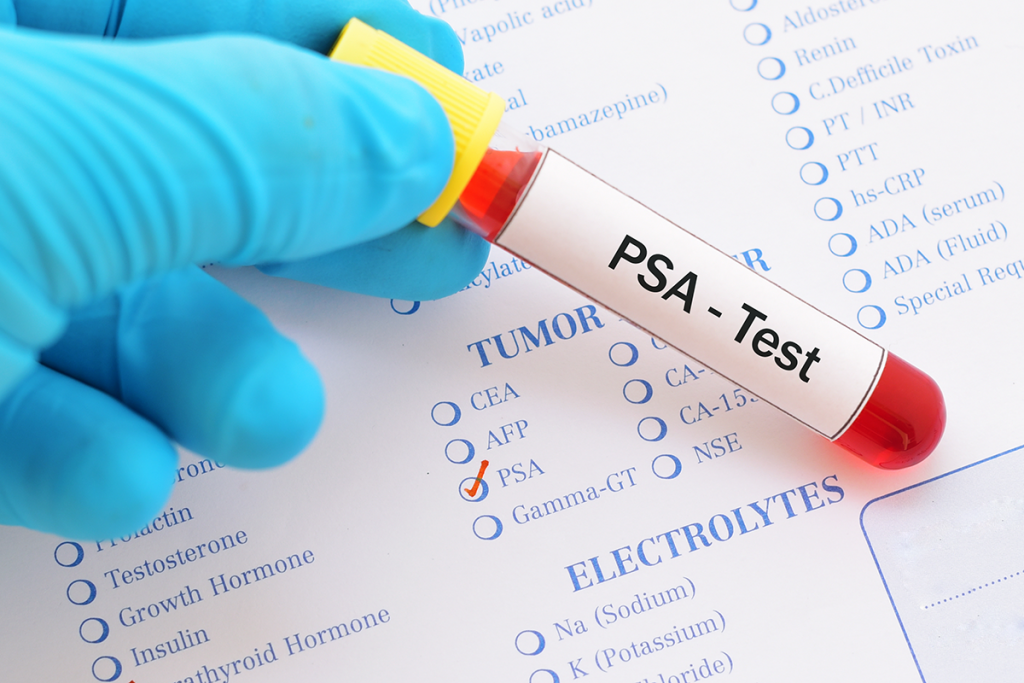One reason black men don’t get screened for prostate cancer is the side effects that come with treatment. Chief among those is erectile dysfunction.
Fact is, many men would opt for keeping their erectile function over getting life-saving prostate cancer treatment.
Black Men’s Health recently spoke with Dr. Kelvin Moses, director of the Comprehensive Prostate Cancer clinic at the Vanderbilt University Medical Center, about this and other issues involving black men and prostate health. In the first part of our Q&A, which you can find here (web link to the first interview), we discussed why black men are contracting prostate cancer at higher rates than others and the appropriate ages to get screened.
Here’s Part 2 of our discussion about those worrying side effects and treatment options. You can find Part 1 of our ‘convo’ here.
BMH: What do you do if you’re in a high-risk category for prostate cancer?
Dr. Kelvin Moses: So, if someone is in an unfavorable or intermediate risk or high-risk category, then we recommend treatment for those men who are appropriate. For the most part, higher risk cancers should be treated, and treatment is in some form of surgery to remove the prostate and pelvic lymph nodes or some form of radiation.
Sometimes that can be in combination with hormone therapy to bring the testosterone down temporarily.
It’s usually one of those forms and there are others using ultrasound or cryotherapy. Typically for higher risk disease, it’s a version of surgery or radiation.
BMH: How real are the side effects? Do they happen to the majority who seek or undergo prostate treatment?
KM: The side effects are real – absolutely.
For men who receive surgery, most have a decrease in their erectile function. Even if you do what’s called a nerve sparing surgery, you still have some decline in erectile function. Now a lot of that depends on what you come to the table with. If you have excellent erectile function and early-stage disease, you can get a good nerve sparing surgery and preserve your erectile function.
But for most men, they will need medication at the very least, like Viagra or Cialis. And then men with profound erectile dysfunction – no function left – then there are other more aggressive therapies that are needed.
I would say up to two-thirds of men have some decline in their erectile function after treatment.
Incontinence is another risk of surgery. Again, it depends on the technique of surgery and the urinary function that people come to the table with.
So, younger men tend to regain their continence, usually within six weeks to three months. With older men, it tends to be a little more challenging. Even after they fully recover, they still have to wear protective pads. As far as total incontinence after surgery, that’s somewhere around 5 to 10 percent, and that really comes down to age. Older men tend to have worse incontinence.
When it comes to radiation, you typically will preserve your erectile function. It may decline slowly over time, but that may also be a function of age – but there could be some input from radiation.
Incontinence is not a significant issue with radiation, but the long-term risk is more like the rectal damage.
“A lot of times men are like, ‘I just want to keep my erections.’ They don’t think about anything else. Their wife, their partner or friend or whoever is sitting there is like, ‘hey, I want you to live. We’ll deal with that down the road. But, let’s take care of the cancer’.”
—Dr. Kelvin Moses
BMH: For our audience who may shiver at these issues, and maybe this question is a pipe dream…Are there any alternative treatments that don’t result in those types of complications?
KM: Potentially. So, it gets back to if disease is found at an early stage. There are several treatments that are relatively new and under investigation where you can treat just the part of the prostate that has the cancer in it, what’s called partial gland treatment or ablation. You can do high-intensity focused ultrasound where they are targeting specific lesions in the prostate or if they do cryotherapy, just doing one side of the prostate.
Any treatment on the prostate, if surrounded by nerves that serve for erection, are surrounded by muscle or nerves that help with your urinary continence. Again, anything is going to have some effects, but it depends of the type of function men come to the table with before treatment.
That goes back to what we’re talking about earlier with screening. If it is found at an early stage, you might not even have to have treatment or you can have a much more functionally preserving treatment compared to if you have high risk disease where you really have to be more aggressive in terms of cancer control.
BMH: What advice would you give someone who recently discovered they had prostate cancer?
The first thing I would say is take a deep breath. For the most part, men don’t die from prostate cancer. The risk of death is very low, particularly if it is found at a localized stage. That’s the first thing.
The second thing I would say is educate yourself, read up from reputable sources. Don’t go to “Ihaveprostatecancer.com.” Go to the NCCN, the American Cancer Society, or one of those types of sources and read up about it and inform yourself.
I would say get a second opinion. Even if the next physician agrees with the first one, you’re still getting more information. You’re giving yourself time to process information and also educating yourself so you are making an informed decision about which direction you want to go.
I always encourage my patients to get a second opinion. I consider myself a pretty well versed in prostate cancer but I would never get upset if someone says ‘hey, I want to get a second opinion.’
If you’re physician does get upset, you’ll probably want to move on because the physician has to take their personal feelings out of it. Once you’ve gotten that information, you can talk with your significant other or family and decide within yourself, ‘hey these are my priorities’.
A lot of times men are like, ‘I just want to keep my erections.’ They don’t think about anything else. Their wife, their partner or friend or whoever is sitting there is like, ‘hey, I want you to live. We’ll deal with that down the road. But, let’s take care of the cancer.’ Sometimes, we have to get that reality check about what the priorities are.
Once you’ve educated yourself and decide on your priorities, then go with whatever you feel comfortable with and understand there’s going to be bumps along the road. But you’re prepared for it. With you and your physician, you’ll get through it.
BMH: Is there anything you’d like to add?
KM: Men need to educate themselves. Men need to get over the mental hurdle of screening.
Frequently, I go out to these talks and I mention the rectal exam and everyone kind of groans and squirms around. I say, ‘hey look, if this is to save your life, wouldn’t you do it? Your mom and your sisters and your wife and whoever have been getting that type of exam since they were probably 16, 17 years old.
You have to get over that mental hurdle. However you walked into that room, you’ll walk out the same way. It’s okay.
Be proactive about your health. Men aren’t necessarily proactive about their health. A lot of times, men haven’t had a physical exam since they’ve tried out for football or went into the military or went to college. Thirty years later, now all of a sudden, they’ve got all these issues.
So, go out there and get your primary care physician. Start in your 30s. Start taking control of your health and all aspects of it, including your prostate health.












